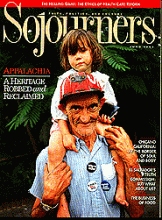I park my car beside the old railroad switch that my grandfather threw three times each day. All the conductors loved Gramp--he made passing through Decota a stride easier. They knew that without him they would have to jump from the moving train, throw the switch, then scurry back to the step ladder, swinging their way up to the caboose.
Today it is shocking to stand between the rails, waist deep in weeds. I can still see the faces of the workers who loaded the coal being shipped out of the holler to the Kanawha River for others to burn in steel mills and power plants far away from Cabin Creek. They were good people, hard-working and proud of their heritage. Heirs of the hard-won wars that had torn the coal fields with a cruel bloodletting only decades before, they knew what oppression meant, and they valued the power of collective action.
Now, they are all gone. No smiles from the engineer, no silver rails gleaming in the sun, no one sitting on front-porch swings stringing beans for the evening dinner.
I walk with a friend to the spot where the front door of the Decota Methodist Church used to be. I recall the old stories and moving yarns by inspired country preachers proclaiming the good news of Jesus Christ. The church had been the center of community life--a gathering place for the women's club and the quilting groups, the men's breakfast circles and union contract discussions, the town playhouse and the funeral parlor.
Now, the church too is gone. When the coal company sold out to another energy corporation, the miners were gradually laid off and soon they were forced to move in order to find work. Before long, the church could not support itself.
Read the Full Article

